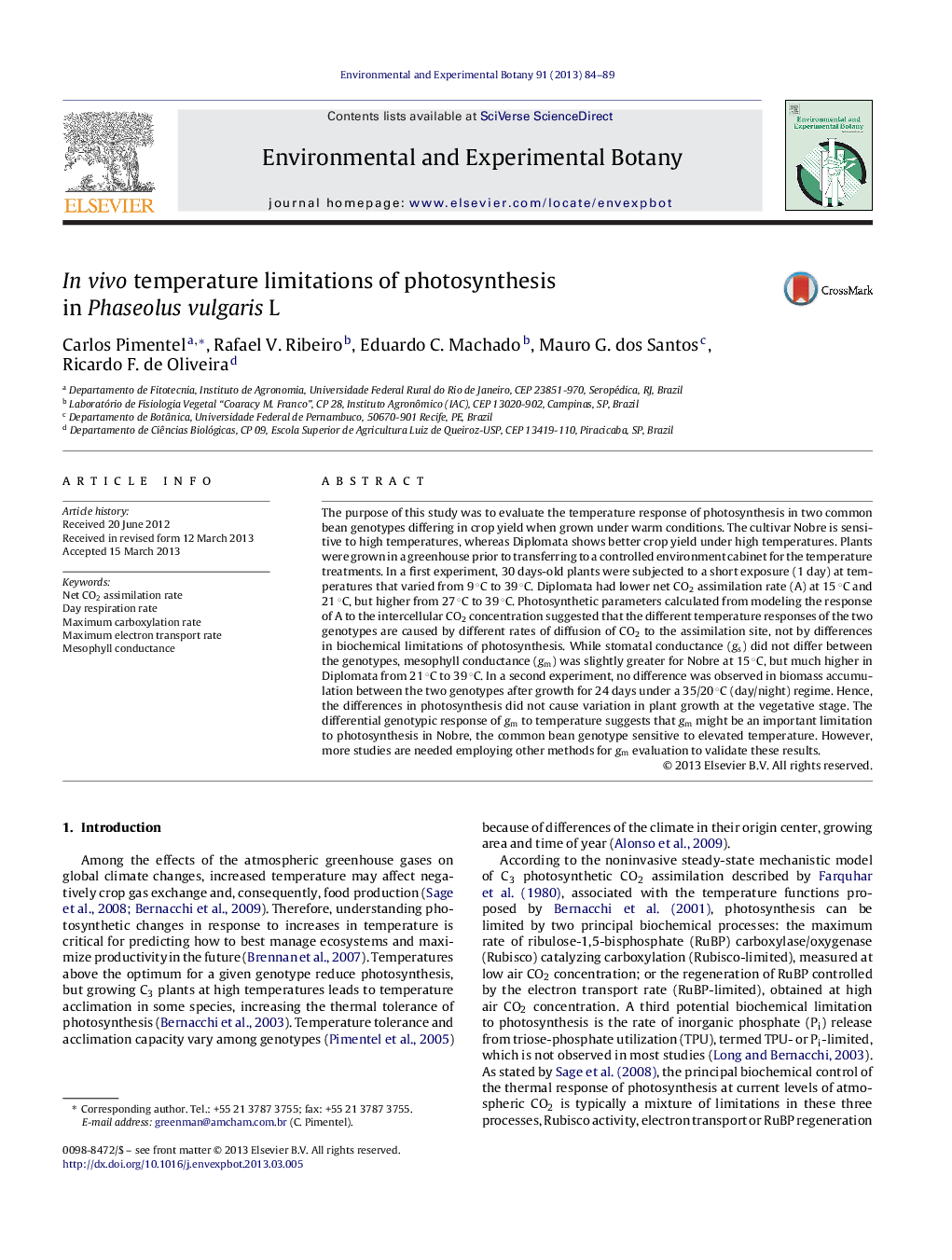| Article ID | Journal | Published Year | Pages | File Type |
|---|---|---|---|---|
| 6388967 | Environmental and Experimental Botany | 2013 | 6 Pages |
Abstract
The purpose of this study was to evaluate the temperature response of photosynthesis in two common bean genotypes differing in crop yield when grown under warm conditions. The cultivar Nobre is sensitive to high temperatures, whereas Diplomata shows better crop yield under high temperatures. Plants were grown in a greenhouse prior to transferring to a controlled environment cabinet for the temperature treatments. In a first experiment, 30 days-old plants were subjected to a short exposure (1 day) at temperatures that varied from 9 °C to 39 °C. Diplomata had lower net CO2 assimilation rate (A) at 15 °C and 21 °C, but higher from 27 °C to 39 °C. Photosynthetic parameters calculated from modeling the response of A to the intercellular CO2 concentration suggested that the different temperature responses of the two genotypes are caused by different rates of diffusion of CO2 to the assimilation site, not by differences in biochemical limitations of photosynthesis. While stomatal conductance (gs) did not differ between the genotypes, mesophyll conductance (gm) was slightly greater for Nobre at 15 °C, but much higher in Diplomata from 21 °C to 39 °C. In a second experiment, no difference was observed in biomass accumulation between the two genotypes after growth for 24 days under a 35/20 °C (day/night) regime. Hence, the differences in photosynthesis did not cause variation in plant growth at the vegetative stage. The differential genotypic response of gm to temperature suggests that gm might be an important limitation to photosynthesis in Nobre, the common bean genotype sensitive to elevated temperature. However, more studies are needed employing other methods for gm evaluation to validate these results.
Related Topics
Life Sciences
Agricultural and Biological Sciences
Ecology, Evolution, Behavior and Systematics
Authors
Carlos Pimentel, Rafael V. Ribeiro, Eduardo C. Machado, Mauro G. dos Santos, Ricardo F. de Oliveira,
